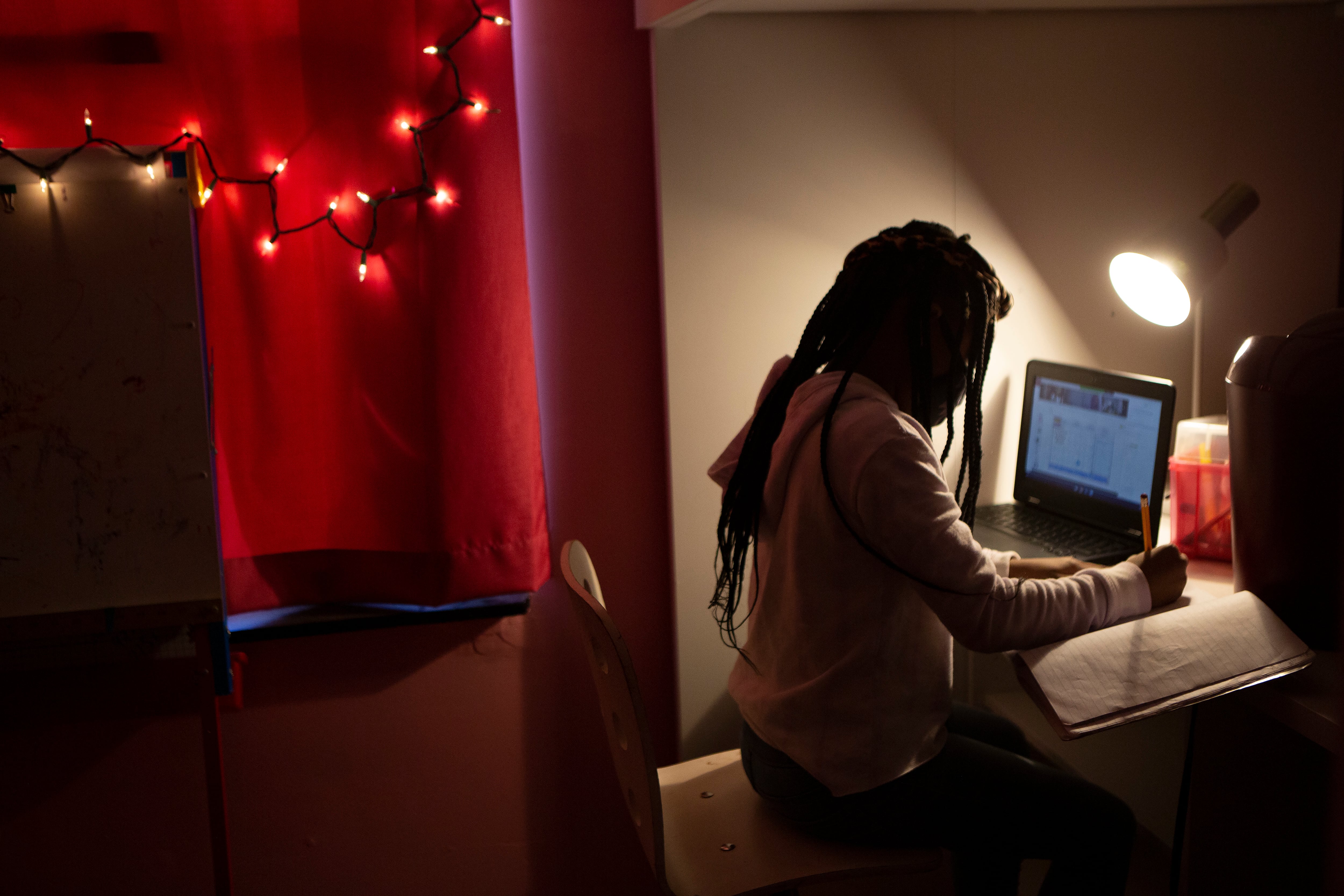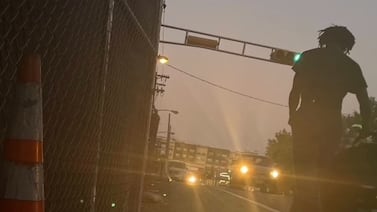Memphis and Nashville virtual public schools are seeing their highest enrollments ever as the second school year is about to begin during the COVID-19 pandemic.
Shelby County Schools says 200 students are enrolled in Memphis Virtual School, up from 106 in the 2019-20 school year. The school had 163 students the year before.
Metro Nashville Public Schools says that MNPS Virtual School has 300 students enrolled this year. That’s more than double its all-time high of 140 students in 2014-15 and more than triple the 90 in 2019-20.
The Tennessee Department of Education approved 29 new virtual schools last month, bringing the total to 57 in the state.
Memphis Virtual School, which started as a high school in 2013, and later expanded to middle school, is admitting students as young as fourth grade this year.
Valerie Matthews, assistant superintendent of virtual education and logistics for Shelby County Schools, said the pandemic was a factor in the expansion as some parents found that online learning worked better for their children.
“What we did see is that although it was a pandemic, and we were kind of forced into remote learning, that we had a lot of students that learned for themselves that this was actually a better learning modality for them,” Matthews said at a press conference this week.
“So it’s not just parents enrolling in Memphis Virtual School because they may have some reservations about returning in person,” she added. “Because we know that in-person is going to be safe, and we have all precautions and measures in place for a safe return, but we just are emphasizing that for some students and parents it was just a better learning option for their child.”
Unlike the approach to online learning that many students experienced last year, when a teacher guided them through live lessons, Memphis Virtual Schools uses pre-recorded lessons provided by Florida Virtual School. Students work independently, a model known as asynchronous learning. And, they submit their work to their teachers, emailing them along the way if they have questions.
Nashville, which also added fourth grade this year, uses a similar model.
The school’s website states, “Please note that classes are not synchronous with ‘live’ daily interaction between students and teachers. Courses are constructed around ‘modules and lessons,’ allowing students to work independently and advance at their own pace — with the support and help of a highly qualified, certified, and caring teacher.”
Both the Nashville and Memphis school districts support learners with their own certified teachers rather than subcontractors.
“So if, let’s say, that students may be struggling with a specific skill or concept, we have a certified teacher, who Memphis Virtual School employs, that reaches out to those students to say, ‘Hey, I see that you’re having some trouble here,” said Matthews.
“We also have tutors in-person where teachers, or actually certified teachers, interact with our students,” she added. “There is an in-person touch.”
Full-time virtual learners may visit a designated site during the day to receive in-person tutoring. Part-time students receive tutoring, when needed, after traditional school hours via a virtual platform such as Microsoft Teams.
Students at the two schools are also able to participate in extracurricular activities and sports with their zoned school under the state athletics association’s recently expanded home school rule.
But virtual learning is not an option for some interested parents.
Elizabeth “Bibi” Hines kept her twins home last year, opting for all-online instruction instead of in-person or hybrid.
This year, at least for now, her only option is to send them back to the classroom.
She would have sent them to the MNPS Virtual School, but the rising third-graders are too young. Both are under 12 and therefore ineligible for the COVID vaccines, which is stressing her out as the delta variant spreads rapidly, with the first day of school around the corner.
Children under 12, however, may be eligible for at least one of the COVID-19 vaccines by the end of the year.
For now, Hines, who chairs the local Parent Advisory Council (PAC), trusts Adrienne Battle, head of the district, to make the best decisions for her kids’ safety and education because the district has done a good job of keeping them informed.
“I think they’re ready,” she said. “I’m nervous, but I trust the system.”
She and Dawn Johnson, another PAC leader, said the latest spike hasn’t changed many parents’ minds about going in-person. Parents interested in virtual school made up their minds months ago. They said many Nashville parents want their kids in school, and they want a mask requirement, and probably a vaccine requirement for employees, too.
Johnson’s daughter is also under 12. The rising fifth grader is old enough to go to the MNPS Virtual School, but she’ll be in-person, as well.
“It was a hard decision,” she said. “We had to make it as a family.”
When a majority of those who attended an orientation this week wore masks, Johnson was “both shocked and thrilled.”
Face coverings, which have proved to reduce the spread of COVID-19, will be required in Memphis public schools. In July, Nashville school leaders announced that face coverings would be optional, but officials are reevaluating that decision in a meeting today following recent guidance from the American Academy of Pediatrics which recommended masks for all students and school employees.
Johnson said her daughter is ready for what her family feels is the responsibility that comes with returning to school during a pandemic.
“She’s totally OK wearing a mask,” she said. “She’s ready to do the things she needs to do to keep herself safe.”








